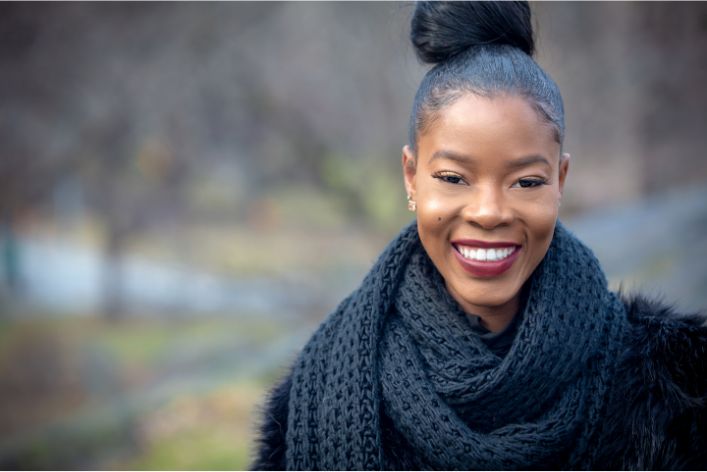Women in Nigerian Media: Breaking the Glass Ceiling
Last Updated on July 6, 2023
Introduction
This blog post is focused on the topic of women in Nigerian media and how they are breaking the glass ceiling.
In Nigeria, women are underrepresented in many sectors including the media industry.
By raising awareness on this issue and highlighting the achievements of successful women in this field, we can inspire more young women to pursue careers in media and break down barriers.
This blog post aims to showcase some of the incredible women who have made strides in the Nigerian media industry and to explore how they are paving the way for future generations.
The Historical Context of Women in Nigerian Media
In the past, women in Nigerian media played a limited role due to several factors. Firstly, cultural and societal stereotypes relegated women to domestic chores and child-rearing, leaving men to dominate the media industry.
Additionally, the lack of access to education and financial resources made it difficult for women to break into the field. Furthermore, discriminatory hiring practices and workplace cultures perpetuated gender inequality.
However, despite these challenges, some women were able to break barriers and achieve success in Nigerian media. Notable examples include:
- Funke Aboyade – a prominent lawyer and former editor of Vanguard newspaper
- Mariam Mohammed – the first female Director General of the Nigerian Television Authority (NTA)
- Funmi Iyanda – a popular talk show host and media entrepreneur
These women paved the way for future generations and helped to shatter the glass ceiling in Nigerian media. However, there is still more work to be done to ensure that gender equality is fully realized in this field.
Read: Emerging Digital Media Trends Transforming Nigeria
Women’s Representation in Nigerian Media
Overview of the Current state of women representation in Nigerian Media
Women have been making efforts to break the glass ceiling in Nigerian media. However, the representation of women in the media industry is still low compared to men.
A survey from the International Women’s Media Foundation (IWMF) in 2018 revealed that only 25% of men and 19% of women in Nigeria believe that women are well represented in the media.
Another study conducted by UNESCO in collaboration with the International Federation of Journalists (IFJ) indicated that women only occupy 27% of senior management positions and 38% of news-gathering roles. On the other hand, men take up 73% of senior management positions and 62% of news-gathering roles.
The media industry has a significant role in shaping the views and beliefs of society. However, the low representation of women in the media, particularly in leadership positions, can hinder the progress of gender equality in Nigeria.
Discussion of the obstacles faced by women in Nigerian media
Several factors contribute to the low representation of women in the Nigerian media industry. One major obstacle is patriarchy, which permeates Nigerian society. The notion that men should be in charge and women should play supporting roles has limited women’s advancement in their careers.
Another obstacle is male domination. In Nigeria, men are predominantly in leadership positions, making it difficult for women to get promoted to senior roles. The lack of women in decision-making positions limits their influence in the media industry.
Furthermore, gender-based discriminatory practices also limit women’s progress in the media industry. Women are often subjected to sexual harassment, exploitation, and unequal pay in the workplace.
Finally, societal expectations and stereotypes that women should focus on domestic responsibilities over professional ones also hamper women’s progress in their careers.
Analysis of how this has affected the media industry in Nigeria
The low representation of women in Nigerian media has had adverse effects on the industry. Firstly, it has led to a lack of diversity in the newsroom, resulting in a narrow range of perspectives. This, in turn, affects the quality of media coverage and limits the extent to which media outlets can be relevant to their audiences.
Secondly, the domination of men in the media has resulted in a lack of focus on issues relating to women. Sexist attitudes and beliefs have fueled misogynistic reporting and coverage of women’s issues. Consequently, the media has failed to provide a platform for women’s voices and opinions.
Moreover, the media industry has missed out on female perspectives, ideas, and leadership, which could have contributed significantly to the growth and development of the industry. The media industry needs to have a diverse workforce to produce exceptional content and remain relevant in today’s society.
In review, Nigerian women in the media face several obstacles that limit their progress in their careers. The low representation of women in the media has had adverse effects on the quality of media coverage and limited the industry’s growth and development.
To break the glass ceiling in the Nigerian media industry, stakeholders need to collaborate to create a conducive environment that supports the growth and progress of women in their careers.
Read: Career Spotlight: Film Director in Nigeria’s Nollywood
Strategies for Breaking the Glass Ceiling
Discussion of the Different Strategies That Women in Nigerian Media Can Use to Break the Glass Ceiling
Breaking through the glass ceiling in the Nigerian media sector could present a challenge for women, but success is not impossible. Some effective strategies include:
- Education and Skills Development: Nigerian women who want to advance their careers in the media sector should seek further education and skills development.
A degree in mass communication, journalism or broadcasting would be ideal for those aspiring to get into the media. Also, attend training sessions and workshops to develop your skills and knowledge in the media sector. - Networking: Networking is critical to breaking through the glass ceiling in any field, including media. Women in Nigerian media should attend media events, seminars, and conferences to meet other professionals in the industry.
Also, use social media platforms like LinkedIn to connect with colleagues and mentors who can provide guidance and support. - Mentorship: Mentorship can serve as encouragement to women and help them navigate the barriers to advancement in the media sector. Women should seek guidance and mentorship from experienced colleagues or industry veterans.
A good mentor could help you develop new skills, identify opportunities for growth and provide direction for your career. - Initiative and Entrepreneurship: Some Nigerian women in media can break the glass ceiling by taking the initiative and starting their media businesses.
This allows them to control their destiny, take charge of their career and make their mark on the industry. - Fight Against Stereotypes and Gender Bias: Women in the media need to fight against stereotypes and gender bias prevalent in the industry to break through the glass ceiling.
This requires women to be assertive, confident and confront bias directly by demanding equal opportunities, positions and pay.
Examples of Women Who Have Used These Strategies Successfully
Plenty of Nigerian women in the media sector have used the above strategies successfully to break through the glass ceiling. Examples include:
- Mo Abudu: Mo Abudu is a Nigerian media mogul who founded Ebony Life TV, an entertainment network that broadcasts to 49 African countries.
Her innovation and entrepreneurship skills contributed a lot in establishing herself as a leading voice in the media industry. - Tope Oshin: Tope Oshin is a Nigerian television and film director. She leveraged her mentorship relationship with movie director Kunle Afolayan and her skills to establish herself as one of the most dominant women in Nigeria’s entertainment industry.
- Khadija Yusuf: Khadijah Yusuf is a journalist with the Voice of America and has over 15 years of experience in the industry.
She has been vocal against gender bias and has mentored women in the field, encouraging them to take up leadership positions.
Analysis of the Challenges That Come with These Strategies
While the strategies discussed above are effective, they come with challenges. These challenges could include:
- Financial Constraints: Education, training, and entrepreneurship require significant financial investment. Not many women have the resources to finance these options.
- Time Constraints: Balancing work, education, and family time can be a challenging task. Finding time for upskilling, networking or starting a business can be tough without proper planning and time management.
- Stereotyping and Gender Bias: Gender bias can undermine women’s efforts in the media industry. Women face constant stereotypes of what job roles they can take, what they should say, how they look, and more. Stereotyping can make it harder for women to network and get mentorship opportunities.
- Limited Opportunities: The Nigerian media sector has limited positions for women in leadership and management positions.
Even with the proper education, training, and networking, women could face stiff competition against men and encounter attitudinal and structural barriers to accessing rewarding career opportunities.
Despite the challenges, Nigerian women in the media sector can take charge of their career progression by utilizing the strategies as discussed.
Women who have successfully broken the glass ceiling in the media sector should serve as role models and mentors, guiding and encouraging future female media leaders.

Read: Nigerian Music Industry: Opportunities & Challenges
The Future of Women in Nigerian Media
Analysis of the current trends in Women representation in Nigerian media
The current trend in Nigeria is that women have slowly but surely been filling more media positions such as journalists, editors, and broadcasters. According to the 2019 UNESCO report, women make up 29% of the media workforce in Nigeria.
This is a positive development, considering that just a few decades ago, there were barely any women present in the media industry.
However, despite these gains, women in Nigerian media still face significant hurdles, including gender discrimination, sexual harassment, and unequal pay.
According to a 2019 report by the International Women’s Media Foundation, 42% of Nigerian women journalists surveyed had experienced gender-based violence in the workplace.
Women are also disproportionately represented in lower-paying roles, and only a few women hold executive positions in media organizations.
Discussion of the future prospects of Women in Nigerian Media
The future for women in Nigerian media is bright, but there is still much work to be done. Women in media are demanding equal opportunities, equal pay, and an end to sexual harassment.
More women are being encouraged to seek roles as journalists, writers, and editors, and there is a growing number of organizations dedicated to advancing women in the media industry.
There are ongoing efforts to support women in media, including training and mentorship programs. For example, the International Women’s Media Foundation provides training programs and fellowships for women journalists in Nigeria.
Numerous women-led media organizations such as the Women in Management, Business, and Public Service (WIMBIZ) and Women in Journalism also provide critical support for women in media.
Recommendations for improving the representation of women in Nigerian media
There are several recommendations for improving the representation of women in Nigerian media:
- Enforce clear policies against gender-based violence and sexual harassment in media organizations.
- Increase the number of women in decision-making positions in media organizations, including executive and board positions.
- Provide equal opportunities and pay for women in the media industry.
- Provide training and mentorship opportunities for women in media.
- Encourage the portrayal of women in media in a positive light and avoid perpetuating negative stereotypes.
- Increase investment in women-led media organizations and initiatives.
- Foster collaboration between media organizations and women-led groups to promote gender equality in media.
In general, the representation of women in Nigerian media has improved significantly in recent years. However, there is still a long way to go in terms of gender equality in media.
The future is bright for women in media, but improving the representation of women in media requires deliberate and sustained efforts to address the challenges they face.
By taking concrete steps to support women in media, we can create a media industry that is inclusive and diverse.
Read: The Rise of Nollywood: An Insider’s Perspective
Conclusion
Summary of the key points discussed in the blog post
In this blog post, we have discussed the challenges faced by women in the Nigerian media and how they are breaking the glass ceiling. We have seen that despite these challenges, women are making progress, and their contributions to the media industry are becoming increasingly recognized and valued.
We have also highlighted some of the key factors that have contributed to this progress, including greater access to education and training, the rise of digital media, and the support of women’s networks and advocacy groups.
Restatement of the thesis statement
It is clear that women in Nigerian media are making significant strides to break the glass ceiling.
Despite the challenges, women are actively contributing to the development of media in Nigeria, and their contributions should be recognized and celebrated.
Final thoughts and a call to action
It is important for all of us to continue supporting the efforts of women in Nigerian media. We must continue to advocate for equal opportunities and recognize the important role that women play in shaping the media industry.
By doing so, we can help to create a more inclusive and diverse media landscape that better reflects the needs and aspirations of the Nigerian people.


